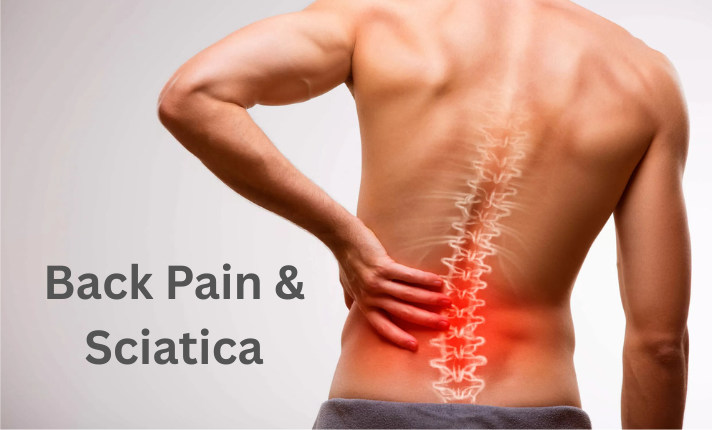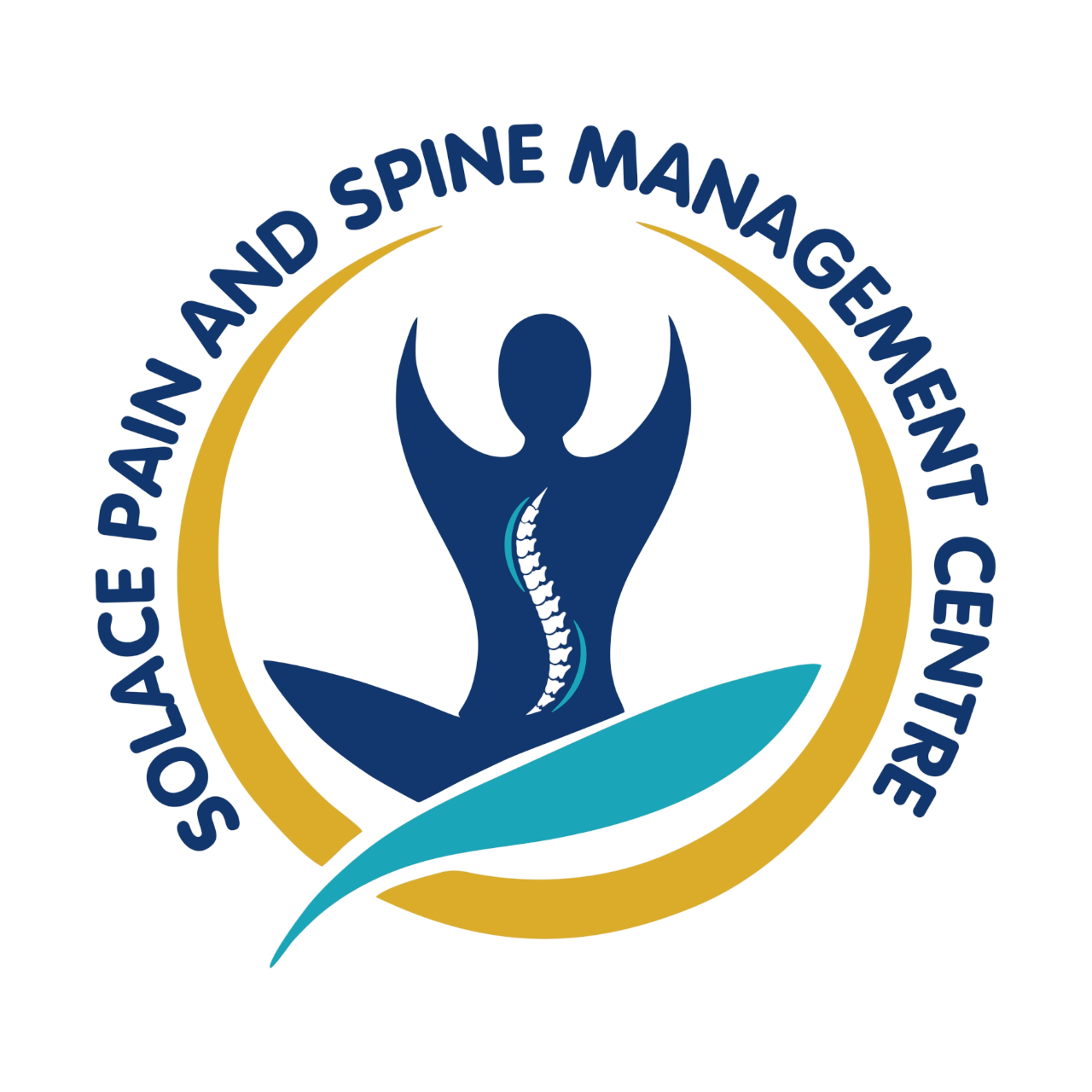
Back pain is one of the most common health complaints worldwide, affecting people of all ages. It can range from a mild, nagging discomfort to severe, debilitating pain that interferes with daily activities. The causes of back pain vary widely and may include muscle strain, herniated discs, spinal stenosis, poor posture, degenerative disc disease, and arthritis. Lifestyle factors such as prolonged sitting, lack of exercise, and improper lifting techniques can also contribute to back pain.
Sciatica is a specific type of back pain that occurs when the sciatic nerve—running from the lower back down each leg—gets compressed or irritated. This condition leads to sharp, radiating pain, numbness, or tingling in the lower back, buttocks, and legs. Common causes of sciatica include herniated discs, spinal misalignment, and muscle tightness in the lower back.
Managing back pain and sciatica requires a comprehensive approach, including physical therapy, medications, lifestyle modifications, and interventional treatments like epidural injections, nerve blocks, and radiofrequency ablation. In severe cases, surgery may be necessary.
At Solace Pain and Spine Management, we offer advanced, non-surgical solutions to help you regain mobility and live pain-free. Our team specializes in diagnosing and treating back pain with personalized care.
Back Pain & Sciatica – FAQs
What are the common causes of back pain?
Back pain can result from muscle strain, herniated discs, spinal stenosis, arthritis, poor posture, and prolonged sitting.
What is sciatica, and how is it different from regular back pain?
Sciatica occurs when the sciatic nerve is compressed, causing sharp pain, numbness, or tingling from the lower back down the leg, whereas general back pain may not involve nerve compression.
Can back pain go away on its own?
Mild cases may resolve with rest, stretching, and posture correction, but persistent or severe pain requires medical evaluation.
What treatments are available for back pain and sciatica?
Treatment options include physical therapy, medications, spinal injections, nerve blocks, radiofrequency ablation and in rare cases, minimally invasive endoscopic spine surgery.
How can I prevent back pain from returning?
Regular exercise, maintaining good posture, using ergonomic furniture, and avoiding heavy lifting can help prevent recurrence.
Expertise
EXCELLENTTrustindex verifies that the original source of the review is Google. Dr Manoj Sharma is not only a skilled professional but also compassionate. I felt genuinely cared for during my visit.”Posted onTrustindex verifies that the original source of the review is Google. Best Doctor ,best work,no pain 🥰♥️Posted onTrustindex verifies that the original source of the review is Google. Solace is the only place where a patient can truly relax and be free from pain. Dr. Manoj and his team have exceptional expertise in pain management. I can personally vouch for their incredible care and professionalism. After my experience, I no longer search for any other place — I highly recommend them to anyone in need of pain relief."Posted onTrustindex verifies that the original source of the review is Google. Excellent pain physician 👍👍Posted onTrustindex verifies that the original source of the review is Google. Dr Manoj Sharma is a good experienced doctor in the field of pain management.If anyone suffering from any kind of neck ,head, spine, backbone pain then must consult dr Manoj sharma once.Posted onTrustindex verifies that the original source of the review is Google. Dr. Manoj Sharma is experienced, skilled, and truly cares about their patients. Their personalized treatment helped me recover quickly and improve mobility.Posted onTrustindex verifies that the original source of the review is Google. I had a neck pain from months,some told me about solace ,I had a great experience with the doctors.my neck pain is much better now .
